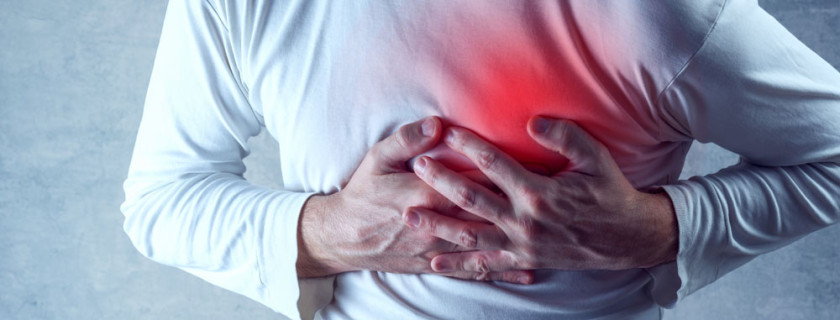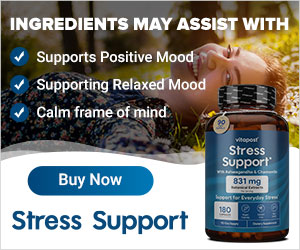Just the thought of chest pain can conjure up dangerous visions of a possible angina pectoris or heart attack! But not many people know that chest pain is not necessarily always linked to the heart. Anxiety can be a big trigger factor for chest pain, though many of the chest pain symptoms are similar to heart related chest pain. As a result, anxiety chest pain seems to mimic heart chest pain, though it lasts for a shorter period.
Symptoms of Anxiety Chest Pain
Chest pain triggered by anxiety can be manifested in many different ways. It may be a subdued but persistent kind of pain, or it may come up like a sharp, shooting jolt of pain. Spasms in the chest area or twitching of the chest muscles can also be a sign of anxiety-related chest pain. In some cases, it may appear to be a shifting pain, moving from the chest to the back region. Or you may feel a sensation of pressure (either persistent or occasional), or burning in the chest. Chest pain anxiety can also show up as numbness, fullness or uneasiness in the chest.
Finally! It is possible to get rid of anxiety naturally and completely!
Need for Proper Diagnosis
Chest pain anxiety symptoms can often be difficult to diagnose not just because of their diversity but also their variable behavior. So you may come across chest pain symptoms that affect just one part of your chest at one time, and then shift to another region at another time. The pain may be persistent, or it may seem to come and go. Even when it comes and goes, the pain can be occasional or frequent. Also, anxiety chest pain can occur in isolation, or may be in conjunction with other symptoms of anxiety, such as fear, heightened stress and nervousness.
Another reason behind the difficulty in diagnosis of anxiety-related chest pain is its intensity. It can be as diverse as the pain location, ranging from low to moderate to severe. Symptoms of anxiety chest pain can change from day to day, and can affect you in different ways at different times, either individually or collectively. So you should not be surprised if your chest pain comes in strong waves at one moment and turns into a mild sort of pressure the next. The signs of chest pain anxiety can appear to get aggravated at times of physical inactivity, such as during sleep.
What Causes Anxiety Chest Pain Symptoms?
Identifying chest pain symptoms is just the first step toward tackling the problem. Understanding the reasons behind the symptomatic manifestation of chest pain anxiety is also important to curing, or at least minimizing, the condition. What happens is that anxiety (being an extreme emotion) triggers stress response, which leads to hormonal changes in the body. These changes usually have certain physiological and psychological, as well as emotional, effects on the body. All these effects combine to boost your ability to handle your ‘fight or flight’ response to the stress factor. One of the physiological changes caused by anxiety relates to the tightening of the muscles in the chest region. The chest and rib muscles begin to feel pressurized, leading to a spike in respiration, blood pressure and heart rate. Oxygen flow gets diverted from the heart to other parts of the body, causing dilation or constriction of blood vessels in various organs. This condition is manifested as chest pain.
Aggravation of Anxiety Chest Pain
Now, as we all know, an occasional stress response situation is manageable, since the body is not only able to handle the response but can also recover quite fast from its over-stimulated condition. The problem occurs when there are too many such occasions, or the stress response situation erupts suddenly and abruptly. In such circumstances, the body takes time to respond, and also takes longer to recover its balance. This leads to stronger and more acute chest pain symptoms, which can even get aggravated by the effect of continued or severe stress on your digestive system. As the tenseness of the muscles moves from the stomach to the chest, the symptoms of anxiety-linked chest pain become even more acute.
Alleviating Anxiety Chest Pain
In most cases, anxiety chest pain tends to disappear on its own, simply by resting your body. Recovery from a stress response situation is integral to relief from chest pain triggered by anxiety. That’s because the symptoms of the condition are the result of stress response. Logically speaking, then, you need to get out of the stress response condition and calm yourself. Normally, it’s a matter of a few minutes to recover from stress response and get rid of your chest pain. However, if the stress levels are very high then the recovery time may get prolonged. Full recovery usually causes the anxiety related chest pain symptoms to disappear completely.
There are certain methods which you can apply to expedite the post stress response recovery process. Breathing is one way you can relax your way out of any stress response situation. Deep breathing helps in the alleviation of anxiety chest pain by helping the body recover quickly from stress response. You can also go for other relaxation techniques, such as meditation, to keep anxiety chest pain under control. In case of stomach related chest pain anxiety, it may be a good idea to use digestive medication to relieve the symptoms, or even better: healthy diet, meaning dropping sugar, starches and processed food from your diet.
Healthy diet and lifestyle, coupled with regular exercise, are also beneficial in treating anxiety linked chest pain. Alternative medicines, effective holistic self-help programs and behavioral therapy have also been seen to be useful for patients of anxiety chest pain. However, if such pain is persisting for a long time or seems to be occurring frequently, it’s time for you to visit your doctor and take drugs as prescribed.
Over 97% have found help for their anxiety with THIS holistic, drug-free method
Conclusion
The key to the treatment of any type of anxiety symptoms, including anxiety chest pain, can be found in a holistic combination of multiple therapies. So the best way to treat anxiety chest pain is to go for natural therapies and medications as prescribed by your doctor.






